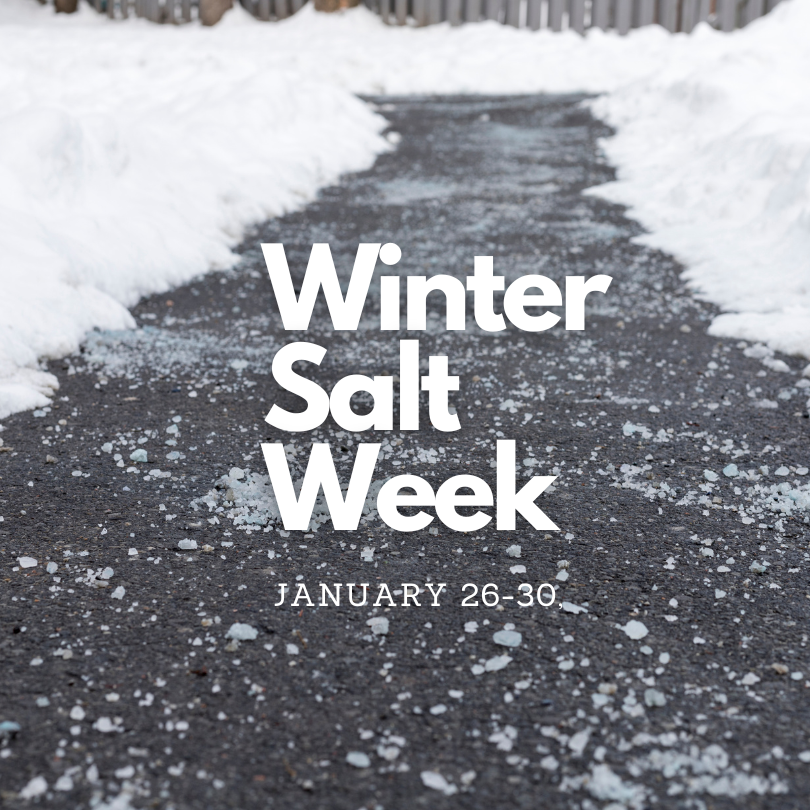
January 22, 2026| Education, Environment
By: Holly Odgers
Each winter, roads, sidewalks, and driveways turn white not just from snow but from salt. But once the snow melts, that salt doesn’t disappear—it washes into our lakes, streams, and groundwater. Rising salt levels corrode infrastructure, stress wildlife, and pose risks to our drinking water supplies.
To spotlight this growing challenge, we are joining partners across the country during Winter Salt Week (January 26–30, 2026), a nationwide effort to help communities better understand salt pollution and explore practical ways to protect freshwater. As part of the week, we will offer a free online program, Road Salt & Our Waterways, on Thursday, January 29, at 7:00 pm over Zoom.
As chloride concentrations rise in lakes, rivers, and groundwater, they can become toxic to aquatic life, disrupting ecosystems and degrading water quality. Because chloride does not easily dissipate, it builds up over time, leading to long-term contamination of freshwater systems. This persistent pollution threatens drinking water supplies and harms wildlife, underscoring the need for more responsible salt use.
For a more in-depth look at how road salt harms the environment, check out this article from the Columbia Climate School.
Here are four simple actions you can take to make a difference.
Throughout the week, leading experts in environmental science, public works, engineering, and policy will share insights on smarter winter maintenance, community action, and innovative solutions already taking root. Whether you’re a resident, property manager, or simply curious about protecting local waters, there’s something for you.
To track the impact of road salt on freshwater streams and lakes, the New Jersey Watershed Watch Network launched the NJ Salt Watch Monitoring Program in December 2020. Since its inception, hundreds of volunteers have gathered thousands of chloride measurements statewide. At the Lake Hopatcong Foundation, we coordinate salt monitoring volunteers who sample and share data from seven key locations around the lake. You can see a map of all testing locations and data here. This data is essential for assessing the scale of the road salt problem, guiding conservation efforts, and equipping municipalities with insights to improve salt application strategies.
Protecting our freshwater ecosystems from the harmful effects of road salt requires collective effort and informed action. Together, we can keep winter roads safe and our waters healthy.